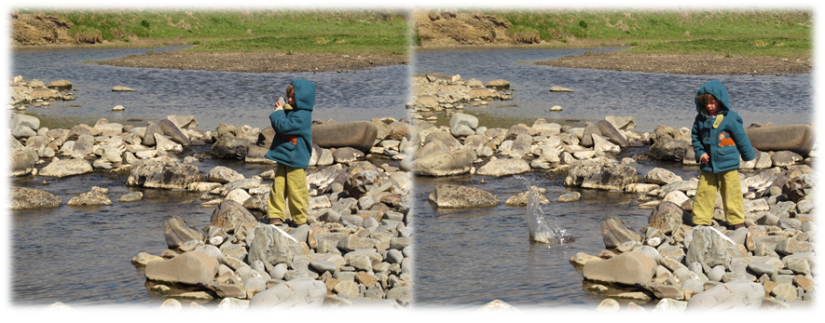
About ten years ago, we – the then childless couple – were thinking about how we would like to live our lives. We believe many couples and families have such evening-on-the-sofa-rituals. What is important to us? How do we want to raise our children? Where shall we live? What can we work or do to create an income? Which decisions do we need to make to succeed? To some questions we quite easily found the answers: we always wanted to spend as much time as possible with our children. Work as much as needed in order to pay the bills. Live within a community in which people look after and support each other. With lots of green, trees to climb, healthy local food to eat. A place where art and music are being celebrated, where people treat each other with respect and kindness, that’s respect for children too.
We were looking for a life where our family is the centre. To put our family in the centre to us means being able to make our own choices, rather than being dictated by society how we should live. We’re not buying into the current ideologies out there, which are meant to strengthen the patriarchal and capitalist systems. However, it is shocking to think that every day we, who despise these systems, are strengthening them, just because through our upbringing, as well as everyday exposure to this lifestyle it is so ingrained in us that it takes effort to see through them.
In this article we’re going to expose some of the lifestyles and thoughts we have taken on, because they have been presented to us as being the “norm”. Mostly, we want to be normal…
Let’s take a look where it all starts: for most of us it’s in our childhood. From the early days in our parents’ home and in school we get trained and conditioned on so called values about how we should, even on how we must live our lives. A good, meaning valued, citizen is one who has a good job (to get there you must be good in school, so you must get good grades, ideally be better than others), who has a (small) family, a nice house (in a “good” neighbourhood), a rather expensive car, pays into a pension scheme, has an insurance for everything, and asks no stupid questions. Sounds familiar to you?
That spiral continues when working for a company. Your boss carries on telling you how to behave: A good citizen works hard for 45 or so years, does unpaid overtime (you really want that promotion, don’t you?!), lives a short life as a pensioner, then dies of cancer or any other disease.
When the ‘good citizen’ becomes a parent there are certain expectations to fulfil to fit into our society: send the child to nursery, then school while you continue working hard for your employer, see your family for an hour or two in the evening, pay taxes, do as you’re told. This mantra gets repeated in the media day after day. Media controlled and managed by big corporations (who don’t even pay taxes).
Why are we so susceptible to observing this ‘one size fits all’ ruling model? Is it really possible that so many of us, very individual people, all want the same thing? We believe that many are struggling to escape this life because of fear.
Fear As The Disabling Factor In Facilitating Change
This fear, where is it coming from and why do we feel it so extremely present? Fear is the anchor of our consumer society. Economy and politics go hand in hand to project fears on us. The cycle of work, earning money, spending money, needing more money, buying more (bigger) objects are all related to our fear of not being part of the game (you’re unhappy with your job? Buy something and you ‘feel better’).
Our fear lets us to believe we need others (like the government or military) to ‘protect’ us. Have you ever noticed that ALL news programmes are fully loaded with negative news? Stop becoming depressed by watching how horrible some of our fellow humans are. Again, your fear is being fed. Get rid of it. Look at what you can do to support those who struggle in your community, by helping them in practical ways but also by empowering them to know what they really need in their life.
Parenting In A Capitalist Society
Many people we know are getting more and more unhappy, even frustrated with the cycle of obedience, permanent competition and dependence. They’re simply fed up with being the hamster in the wheel, running every day mile after mile in order to just pay off bills, the house, the car… or to save a few bucks to get the next holiday. In this whole mess our parenting job is included.
The UK government throws a lot of money at so called back-to-work-programmes for parents . Parents are getting financially rewarded when they find a job/go back to their job as soon as possible. The baby/toddler goes off to nursery. The earlier the better. Early prevention, that’s what the government calls it. By doing this it throws all attachment theories out of the window at the same time. Well, who really needs a strong bond to his baby or child? Why on earth should you be around when your child does his first step or says her first word?
No, we’re all needed in our shiny offices, factories, schools, departments, supermarkets. For the common good – to produce more, to consume more, to make the rich even richer. No time or energy for fancy ideas of breaking out of this system. Once in it, once a slave to the system how can you break free? How can you live without earning money, we all need it, right?
How Can We Break Out Of This Cycle?
But, as said, people – or let’s stick to our good citizens – are getting fed up with that kind of life. They realise that money doesn’t buy you happiness. They know that the first five years in your child’s life are the most important ones. That your big corporation can go bankrupt tomorrow and suddenly you’re out of work (or that if you make demands/bring in your own thoughts, they’ll drop you, just like that). That two weeks summer holidays (at outrageous costs) doesn’t replace proper quality time and a good relationship with your children.
 Many realise that. But then the same people look at us, shrug their shoulders and we see that uneasy feeling on their faces , saying: ‘Well, what can you do? That’s how life is, isn’t it?’. For years we would have sighed and said ‘yes, you’re right. Nothing we can do’. Bonkers. Because our parents, our teachers, our bosses, our prime ministers, our neighbours, our friends have told us so? What is it that holds us back? Why don’t we say to our boss tomorrow ‘look, I’ve got family and I love them to pieces, I need to work less’? Why don’t we say to doctors ‘hey, thank you for your advice (on vaccinations or on your child’s development etc.) but I’m getting a second opinion/listen to my intuition before I decide what’s best for my child’? Why don’t we break out of our over-expensive, damp houses and change our world now? How can we overcome the fear that’s holding us back living our dreams, living life on our own terms?
Many realise that. But then the same people look at us, shrug their shoulders and we see that uneasy feeling on their faces , saying: ‘Well, what can you do? That’s how life is, isn’t it?’. For years we would have sighed and said ‘yes, you’re right. Nothing we can do’. Bonkers. Because our parents, our teachers, our bosses, our prime ministers, our neighbours, our friends have told us so? What is it that holds us back? Why don’t we say to our boss tomorrow ‘look, I’ve got family and I love them to pieces, I need to work less’? Why don’t we say to doctors ‘hey, thank you for your advice (on vaccinations or on your child’s development etc.) but I’m getting a second opinion/listen to my intuition before I decide what’s best for my child’? Why don’t we break out of our over-expensive, damp houses and change our world now? How can we overcome the fear that’s holding us back living our dreams, living life on our own terms?
Our family has made the first (and yes, maybe small) steps – out of our comfort zone. We started with talking, reflecting, researching, dreaming. Then we went a little further. We let go ideas of big careers or 9-to-5 jobs. So, over the last years we always negotiated with our employers about working part time, in order to have enough time for our children. Yes, Torsten even left a job some years ago when he was denied the right of working part time. They pushed him as far as they could. His answer was still simple and straight forward: My family is more important than your business. If one parent or both, work long hours, the bond is compromised and one or both might not even see the benefit of working less and spending more time with your child. (Often women then compromise and backing their partner’s career aims, by working less and taking on the bigger part of childcare and domestic tasks…). And, yes, that’s doable to all of us, as Sweden demonstrates it with a 30-hour-working-week. It’s not perfect, but it’s a start.
Digital nomads are finding a new way to escape the hour after hour spent in an office – working remotely, using their laptops only. Nowadays it’s possible for more types of jobs than you think – to talk (even face to face), hold conferences, work on the same documents etc. with modern technology. It’s time more companies think again and offer this style of working to their employees. Companies need to reshape and reorganise themselves. We don’t want hierarchical structures any more – they don’t work. Well, at least not if you like something else than the current systems. We aim for company bosses who are able to talk to their employees on the same level, rather than look down on them and play out their power. All people have the right to be treated respectfully and as individuals, as subjects. The result would be more efficient companies and happier and healthier people and families.
Raising Our Kids To Become Autonomous And Fearless
Before our eldest son was born we decided to unschool. Nearly eight years later all our children enjoy being unschooled. For us, this lifestyle choice is part of a life without fear for all of us. Our kids learn, thrive, explore, question and discover. They learn in their own way and at their pace with our support and respect for their innate development. We create opportunities for them to meet many different people, form relationships, get to know different places, try out a variety of activities and discover their passions so that they have time to develop their potential and be happy.
From baby onwards our children were allowed to be autonomous beings, they decide what they eat (from a range of healthy options), play, who to talk to and what to say. No pressure, no tests, no fears. Instead respect, kindness and unconditional love. This way we get to spend lots of time together as a family, we bond with the kids, siblings bond with each other, we as couple have more of time together. Most people whose children go to school fear the responsibility. Paying others to raise their children for a (often big) chunk of the day, they suddenly feel it’s others who know better what their kids need. They don’t think they can provide what their children require. We don’t blame them, it’s only natural to feel that way, it’s part of the ruling ideology. You are supposed to feel like that. But who decides what’s important for your child to learn? How do they know what your child will need to know in life, in their life? (We can’t even predict where modern advancements will lead us in five, ten, twenty years’ time).
School is a very recent social experiment. For most of human history children would learn from their parents and their wider community. Children used to live and learn in their community what’s important to know to survive within their social structure. Schools can only provide one style of education, it is impossible to individualise the curriculum, which means that it will suit some, by chance, but others it won’t. But, we’re not here to blame teachers. They’re facing the impossible task to nurture and support at least thirty individual children with thirty individual needs in one class.
On the other hand we appreciate and support ideas and practical ways to restructure school. Exciting projects like ‘democratic schools’ are popping up all over the globe.
Another fear factor we eliminated: TV. We haven’t owned a TV for more than 12 years. Because we don’t want our children to get brainwashed by big money making corporations telling us what to buy and what to believe. We don’t want our children to see ads, movies and programmes where gender stereotypes are reinforced.
Our Kids Know They Can Achieve Anything – Regardless Of Their Sex
Gender roles and stereotypes (like in toys, advertisement, consumer products from beauty articles to clothes, sports…) are constantly reinforced within our society. That’s the easiest way to keep the male dominated world of business and politics going.
We raise our children gender-neutrally. Why do kids choose to wear certain clothes? It’s the fear to be different. Gender equality can only be achieved if we let our children choose out of their preference not their sex. They understand they can do/be what and who they want to be. We don’t tell our children that there are clothes and colours for boys and those for girls (who gets to decide that anyway?), we let them choose their toys, whether it’s a dolly or car. We want our sons and daughter to grow up knowing they are just perfect as they are, instead of buying into society’s beauty images. We parent our children equally, responding to them based on their personalities not their gender.
So, yes, our 7-year-old son has long hair, his favourite toy is a doll called Anne, and he wears dresses most days. He loves them. He knows many other boys and men (like his friends) don’t wear them. That’s fine for him, or as he told us: ‘everybody should just wear what they like’. Whenever other adults (it’s mostly them and not other kids) make assumptions on our children’s preferences according to their sex, we challenge them. How else can we change the current inequalities in the workplace (in terms of pay, career paths and progressions)? We, families, need to start demanding for change and be the change ourselves. That means take equal responsibility for childcare and domestic tasks. Women are being held small by how they are portrayed in media, society and treated by our ruling bodies and men are pushed into roles they don’t wish to fulfil.
Fear is one of society’s biggest issue. Fear disables us to try out challenging things and to go for what we really want – regardless of other’s opinions. Fear takes away all the countless possibilities we have. Fear is the heavy chain with a padlock around our neck. But we hold the keys in our hands.
Our fears are not disappearing overnight. Your fears might be very different from ours. You might enjoy life as it is and want to tackle completely different issues. That’s fine. Make it so.
The big steps are not always easy to be made. We know that. If we want a different kind of society, it’s us parents who can change things, by how we live and how we raise our kids. We started small. And we’re not there where we want to be. Not yet. But we’re on our way.
They can grow up, shaping their personalities without the deliberating factor of having to fulfil the artificial gender roles – as much as possible. At least within our family and among our friends. This will, hopefully, prepare them in standing up for themselves in a gendered society.
Nedua and Torsten




 Bruce Mulkey is an essayist and author from Asheville, North Carolina. He has previously contributed to WNC Woman’s Y-chromosome issue and is a regular contributor to The Huffington Post, Elephant Journal, and The Good Men Project. He currently spends much of his time writing his memoir (A Tale of Two Fathers: The Memoir of One Man and His Two Daughters Born 42 Years Apart), playing handball, trail running with his wife Shonnie, and doing his best to keep up with a high-spirited six-year-old on the meandering footpaths of the Appalachians. Learn more at
Bruce Mulkey is an essayist and author from Asheville, North Carolina. He has previously contributed to WNC Woman’s Y-chromosome issue and is a regular contributor to The Huffington Post, Elephant Journal, and The Good Men Project. He currently spends much of his time writing his memoir (A Tale of Two Fathers: The Memoir of One Man and His Two Daughters Born 42 Years Apart), playing handball, trail running with his wife Shonnie, and doing his best to keep up with a high-spirited six-year-old on the meandering footpaths of the Appalachians. Learn more at 
 Many realise that. But then the same people look at us, shrug their shoulders and we see that uneasy feeling on their faces , saying: ‘Well, what can you do? That’s how life is, isn’t it?’. For years we would have sighed and said ‘yes, you’re right. Nothing we can do’. Bonkers. Because our parents, our teachers, our bosses, our prime ministers, our neighbours, our friends have told us so? What is it that holds us back? Why don’t we say to our boss tomorrow ‘look, I’ve got family and I love them to pieces, I need to work less’? Why don’t we say to doctors ‘hey, thank you for your advice (on vaccinations or on your child’s development etc.) but I’m getting a second opinion/listen to my intuition before I decide what’s best for my child’? Why don’t we break out of our over-expensive, damp houses and change our world now? How can we overcome the fear that’s holding us back living our dreams, living life on our own terms?
Many realise that. But then the same people look at us, shrug their shoulders and we see that uneasy feeling on their faces , saying: ‘Well, what can you do? That’s how life is, isn’t it?’. For years we would have sighed and said ‘yes, you’re right. Nothing we can do’. Bonkers. Because our parents, our teachers, our bosses, our prime ministers, our neighbours, our friends have told us so? What is it that holds us back? Why don’t we say to our boss tomorrow ‘look, I’ve got family and I love them to pieces, I need to work less’? Why don’t we say to doctors ‘hey, thank you for your advice (on vaccinations or on your child’s development etc.) but I’m getting a second opinion/listen to my intuition before I decide what’s best for my child’? Why don’t we break out of our over-expensive, damp houses and change our world now? How can we overcome the fear that’s holding us back living our dreams, living life on our own terms?


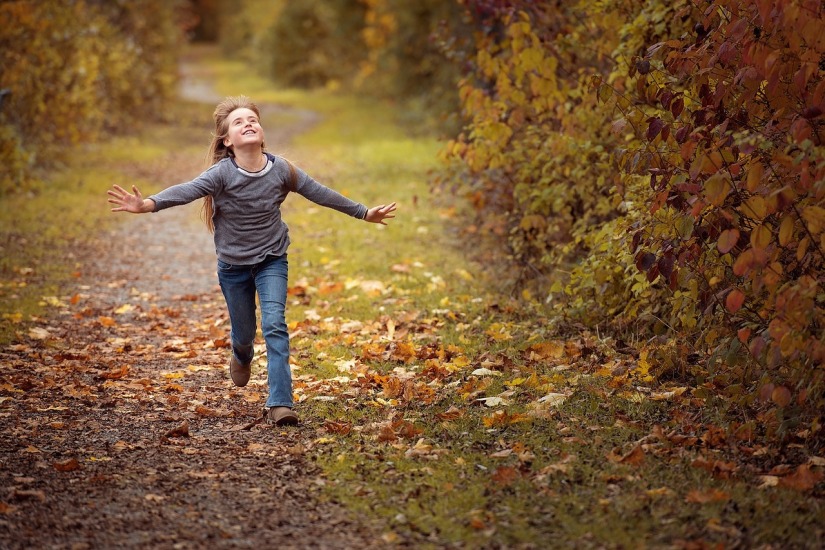 “Sharp knives don’t belong into children’s hands”, “That’s not safe, let me do it”, “A kitchen is no place for kids” – sounds familiar to you? Well, that’s some stuff I had to cope with when growing up myself, and – bad enough that’s still the mantra for many parents or adults working with kids nowadays.
“Sharp knives don’t belong into children’s hands”, “That’s not safe, let me do it”, “A kitchen is no place for kids” – sounds familiar to you? Well, that’s some stuff I had to cope with when growing up myself, and – bad enough that’s still the mantra for many parents or adults working with kids nowadays. Another example comes from the next-best playground of your choice. Little Joe tries to balance over the climbing frame. He concentrates hard enough and works his way up. Before he reaches the top little Joe hears his Dad shouting “Oh Buddy, that’s quite high. Just watch out. Hold tight. No, not left, go right. Easy man. Not quite sure if that’s a good idea”. Smiles nervously. Dad that is. “Hang on. Let me guide you. Stop. Stop I said!” Joe loses his balance and falls off the climbing frame. “Told you to stop!”
Another example comes from the next-best playground of your choice. Little Joe tries to balance over the climbing frame. He concentrates hard enough and works his way up. Before he reaches the top little Joe hears his Dad shouting “Oh Buddy, that’s quite high. Just watch out. Hold tight. No, not left, go right. Easy man. Not quite sure if that’s a good idea”. Smiles nervously. Dad that is. “Hang on. Let me guide you. Stop. Stop I said!” Joe loses his balance and falls off the climbing frame. “Told you to stop!” My eldest, who is nearly 8 now, showed a great interest in preparing meals and cooking lunch and dinner. He’s been watching my wife and me since babyhood. When he was about three, he used a sharp knife (not one you are able to cut your fingers off with, but one that’s just sharp enough for cutting with – a bland one would be safest, sure, but equally useless and only frustrating) for cutting up an apple. Yes, he cut himself a few times, but that’s how he learnt, and nothing happened apart from some quickly dried tears and a cool plaster on a tiny wound. With four he cooked himself porridge on the hob for the first time. Yes, his first cooking session was guided and supervised by me, but I didn’t interfere. I just watched. Today his cooking repertoire includes pasta and tomato sauce, scrambled egg, various cakes and biscuits, and – hold your breath – sushi (ok, the sushi rolls can’t compete with a sushi bar, but it’s just a question of perspective and expectations. Expect a perfectly cooked and awesome looking meal? Do it yourself).
My eldest, who is nearly 8 now, showed a great interest in preparing meals and cooking lunch and dinner. He’s been watching my wife and me since babyhood. When he was about three, he used a sharp knife (not one you are able to cut your fingers off with, but one that’s just sharp enough for cutting with – a bland one would be safest, sure, but equally useless and only frustrating) for cutting up an apple. Yes, he cut himself a few times, but that’s how he learnt, and nothing happened apart from some quickly dried tears and a cool plaster on a tiny wound. With four he cooked himself porridge on the hob for the first time. Yes, his first cooking session was guided and supervised by me, but I didn’t interfere. I just watched. Today his cooking repertoire includes pasta and tomato sauce, scrambled egg, various cakes and biscuits, and – hold your breath – sushi (ok, the sushi rolls can’t compete with a sushi bar, but it’s just a question of perspective and expectations. Expect a perfectly cooked and awesome looking meal? Do it yourself).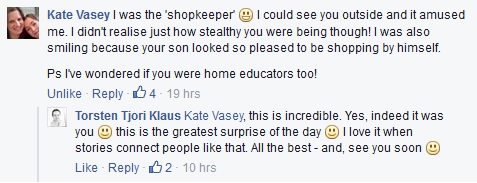 …just awesome! 🙂
…just awesome! 🙂
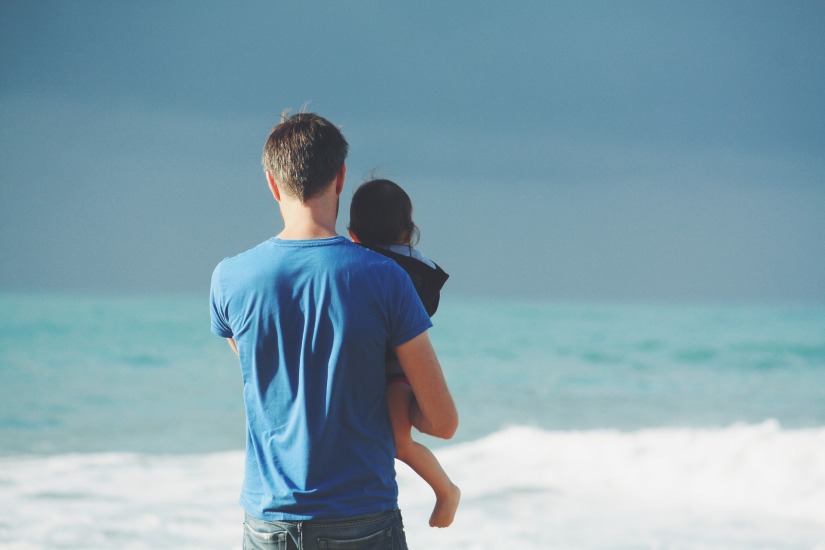

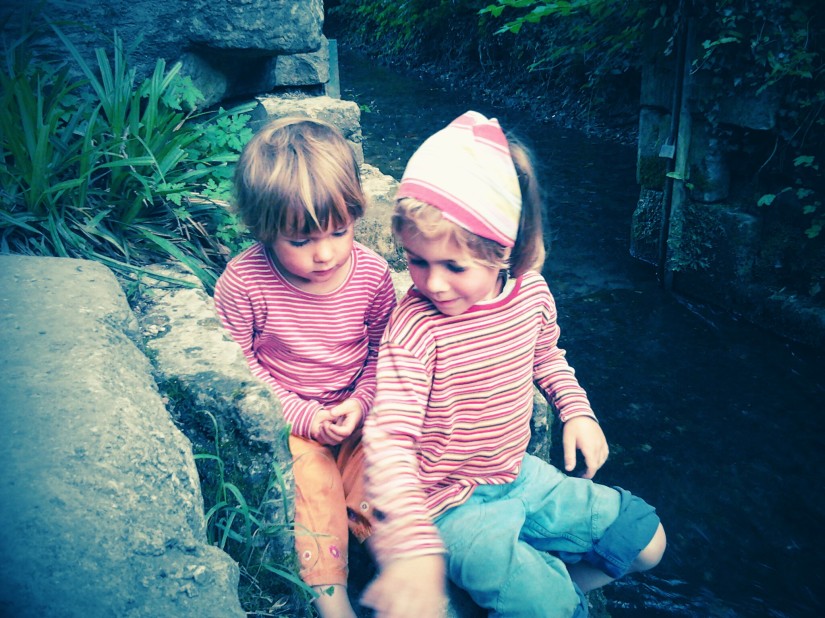
 When I was a teenager I probably considered myself as a nice, friendly and gentle person. But, after a lot of reflecting, I now would say that I couldn’t communicate very well. I did hurt other people’s feelings and I sometimes was very mean as I couldn’t deal with my emotions and feelings. Why is that? I had never learnt to talk about them. Not to my father or another man. I had some very good female friends and it always seemed easier talking to them. I felt heard and listened to; they took me seriously. Still, something was missing.
When I was a teenager I probably considered myself as a nice, friendly and gentle person. But, after a lot of reflecting, I now would say that I couldn’t communicate very well. I did hurt other people’s feelings and I sometimes was very mean as I couldn’t deal with my emotions and feelings. Why is that? I had never learnt to talk about them. Not to my father or another man. I had some very good female friends and it always seemed easier talking to them. I felt heard and listened to; they took me seriously. Still, something was missing. When I stayed at home to look after our children for about two years, I painfully realised how alone I can feel. Don’t get me wrong. I made many female friends, mainly stay-at-home mums. I very much appreciated their company and I had a great time being at home with our kids. But I also longed for some other men and fathers; to share the experience and to see how they cope and feel. I also think it would do many men good to experience this role of full time carer (even if only for a few days a week); it certainly got me more connected to how I want to be and less focused on outside pressures.
When I stayed at home to look after our children for about two years, I painfully realised how alone I can feel. Don’t get me wrong. I made many female friends, mainly stay-at-home mums. I very much appreciated their company and I had a great time being at home with our kids. But I also longed for some other men and fathers; to share the experience and to see how they cope and feel. I also think it would do many men good to experience this role of full time carer (even if only for a few days a week); it certainly got me more connected to how I want to be and less focused on outside pressures.



 Let’s start with Eric D. Greene aka
Let’s start with Eric D. Greene aka  Joanna Steven’s site,
Joanna Steven’s site,  Many of you probably know Josh K aka
Many of you probably know Josh K aka  Just very recently I linked up with
Just very recently I linked up with  Lehla and Anthony Eldridge-Rogers live with their three children in Italy. On their family blog
Lehla and Anthony Eldridge-Rogers live with their three children in Italy. On their family blog  The world of my friend
The world of my friend 
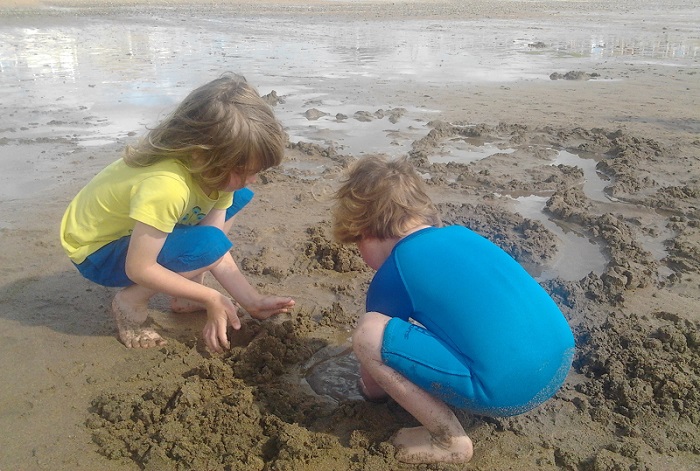


 Why don’t toy shops sell dolls? Just dolls. Rather than boy or girl dolls? Why have some dolls “make up” on, i.e. red painted lips and dark eyelashes, very rosy cheeks etc.? Yes, can you hear me Mattel? It’s not good enough to have a boy in your ads, the actual problem lies in the doll itself. Barbie doesn’t look very natural to me.
Why don’t toy shops sell dolls? Just dolls. Rather than boy or girl dolls? Why have some dolls “make up” on, i.e. red painted lips and dark eyelashes, very rosy cheeks etc.? Yes, can you hear me Mattel? It’s not good enough to have a boy in your ads, the actual problem lies in the doll itself. Barbie doesn’t look very natural to me.